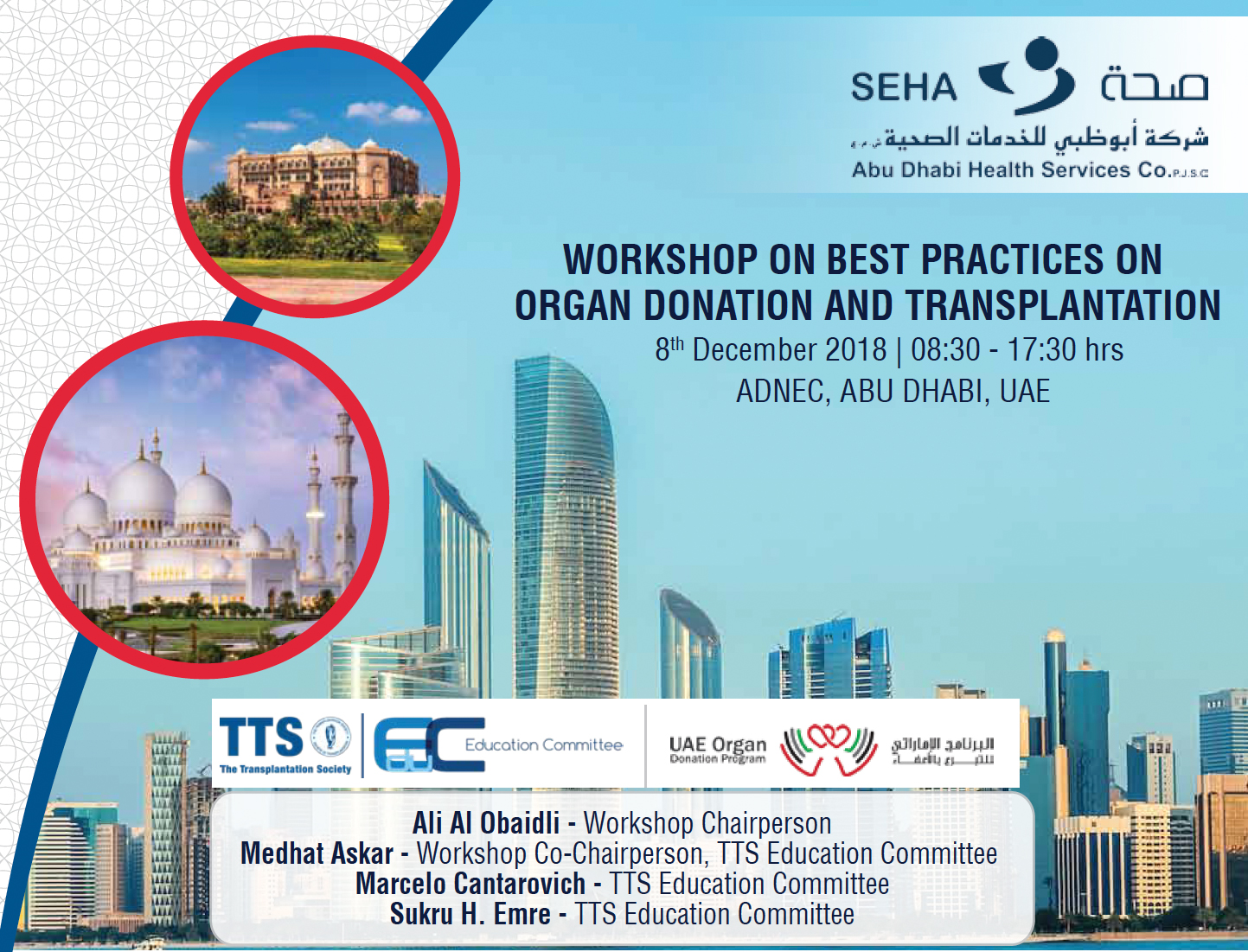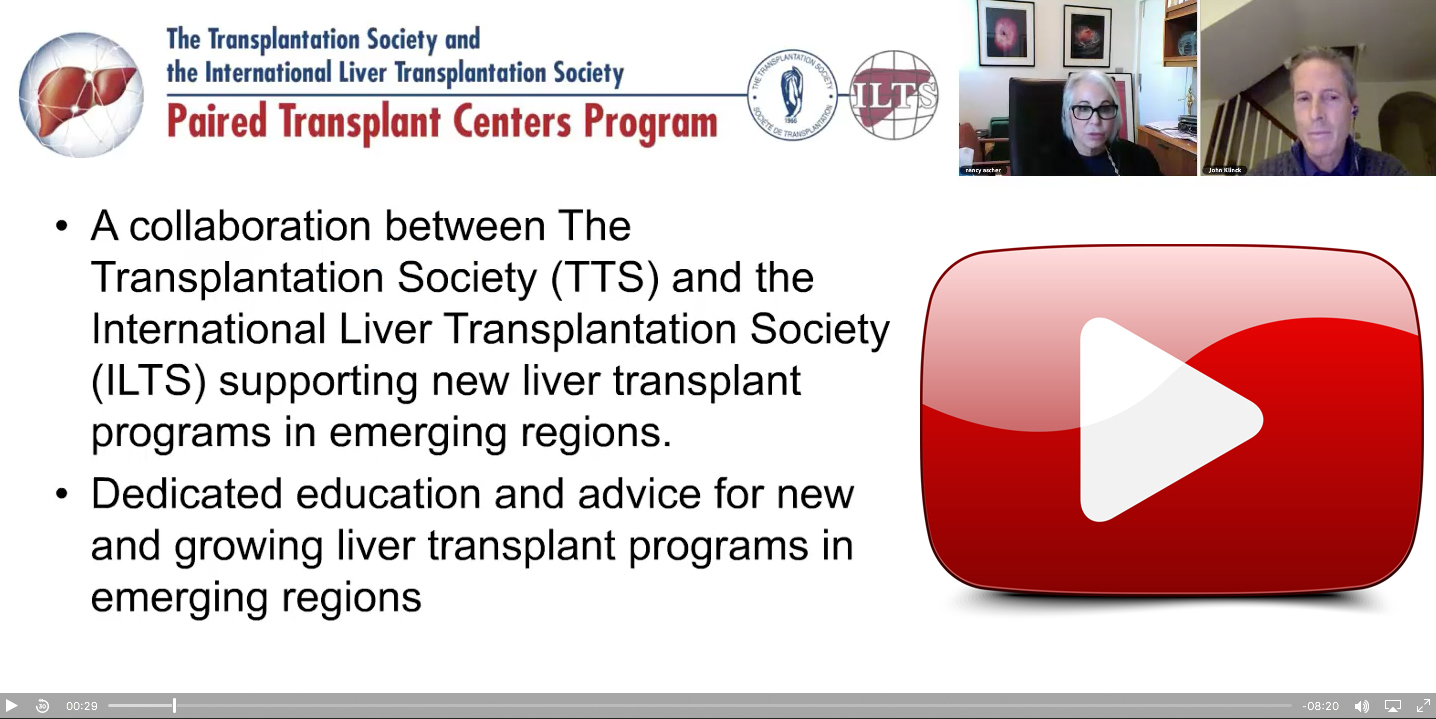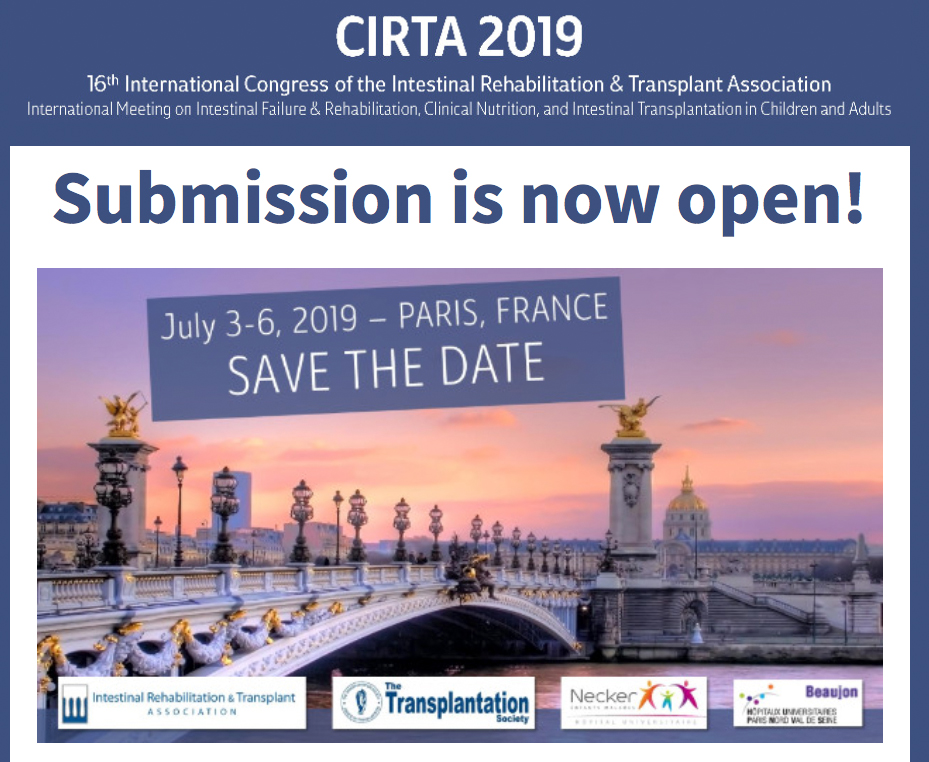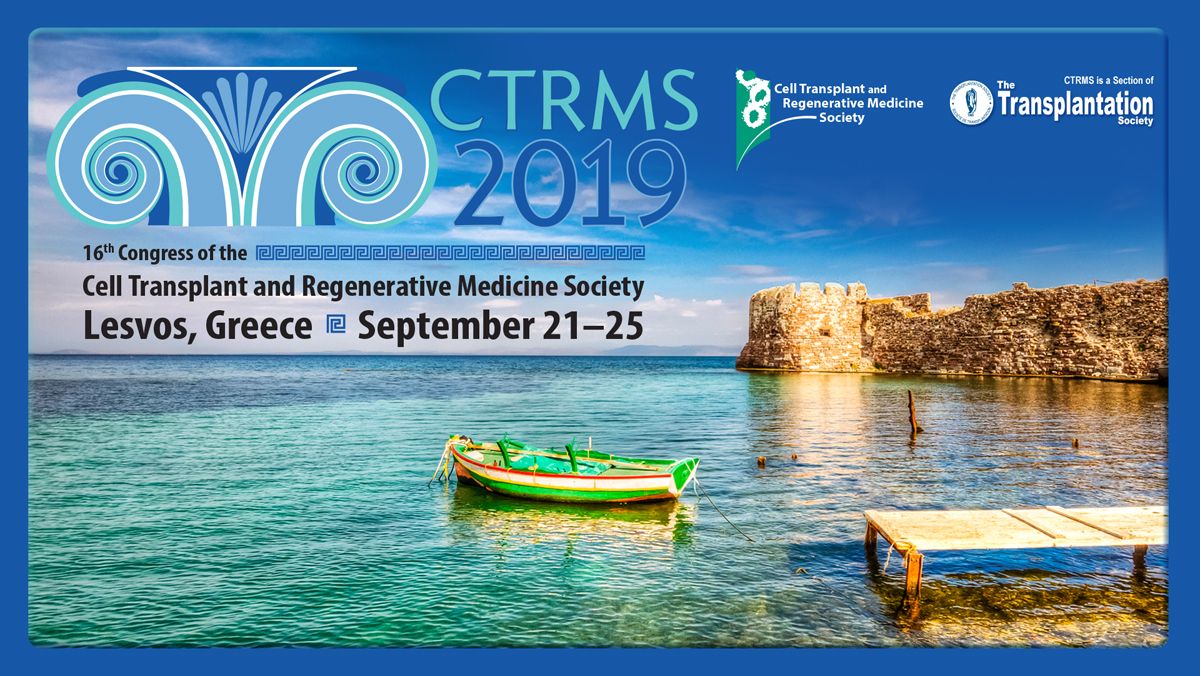
Abstract Deadline is EXtended to December 15, 2018 - Submit today!
We are offering low registration fees, which are futher reduced for TTS, MESOT, TDTD or TOND Members, nurses and non physicians. Students may attend the meeting for free.
Education Committee - New Workshop
The TTS Education Committee will co-organize a one-day workshop on Best Practices on Organ Donation and Transplantationon December 8 at ADNEC in Abu Dhabi, UAE.
It is our pleasure to invite you to “Workshop on best practices on Organ Donation and Transplantation” workshop which is the product of a partnership between the Transplantation Society (TTS), the United Arab Emirates National Transplant Committee, and Abu Dhabi Health Services. This workshop was developed by the TTS Education Committee in the context of this year’s motto: “Transplantation 360: Learning Together” and is intended to advance the mission of TTS by fostering transplant education around the globe.
This state-of-the-art program addresses the region’s need to promote solid organ transplantation with a specific focus on deceased donor solid organ transplantation inclusive of heart, lung, kidney, pancreas, liver and intestinal transplant. The Program will open with an evaluation of the “Current Status of Organ Donation in the Middle East Countries by experts practicing in the Middle East and worldwide. During the workshop, experts will address how to structure an OPO and set up for an effective donation program involving brain death declaration, intensive care
of brain dead donors and clinical pearls of organ acceptance criteria including extended criteria donors, donor derived infections and malignancies.
Experiences from around the world in donor and recipient selection, pre/postoperative care, as well as immunological aspects will be highlighted in an organ specific format.
This comprehensive program with ample opportunities of interactive discussion and exchange of local and worldwide experiences will offer something to learn for everyone from the novice to the veteran expert. We are very excited and look forward to welcoming everyone and hosting a very fruitful meeting
TRANSPLANTATION DIRECT JOURNAL - HIGHLIGHTED ARTICLE
Dr Peri Husen, Editorial Fellow, Transplantation.
A Comparative Study of Single and Dual Perfusion During End-ischemic Subnormothermic Liver Machine Preservation
Brüggenwirth I, Moore C, Mahboub P, et al.
Transplant Direct. 2018;4:e400..
In this study by Brüggenwirth and coworkers, different techniques of end-ischemic subnormothermic liver perfusion were compared using a rodent model of donation after circulatory death rat livers. 18 rat livers were cold stored, followed by 1 hour of subnormothermic machine perfusion (20°C) and 2 hours of ex vivo normothermic reperfusion (37°C). During the machine perfusion phase, animals were divided into 3 experimental groups (n=6 each): single portal vein machine perfusion (SP), dual pulsatile machine perfusion (hepatic artery and portal vein, DPP), and dual continuous flow machine perfusion (hepatic artery and portal vein, DCP). Among other factors, arterial flow, bile production, alanine aminotransferase (ALAT) and lactate levels were assessed. DPP preserved livers demonstrated an improved arterial flow at the end of reperfusion. ALAT levels and bile production were similar among groups. SP livers had lower lactate levels compared to DCP livers. There were no histological differences in terms of biliary endothelial integrity or arterial vasculature damage among the groups. Taken together, dual or single perfusion showed comparable short-term outcomes. However, further studies using lager cohorts are needed in order to draw conclusions on the effects of these machine preservation modalities.
TTS-ILTS PAIRED TRANSPLANT CENTERS PROGRAM
Deadline January 1, 2019
Watch Video Overview with Nancy Ascher(TTS) and John Klick (ILTs)
The TTS-ILTS Paired Transplant Centers Program is a collaboration between The Transplantation Society (TTS) and the International Liver Transplantation Society (ILTS) supporting new liver transplant programs in emerging countries.
Visit www.tts-ilts.org for full details
Watch our video overview with Nancy Ascher and John Klinck
In the News
Duke surgeons perform first abdominal wall transplant in North Carolina
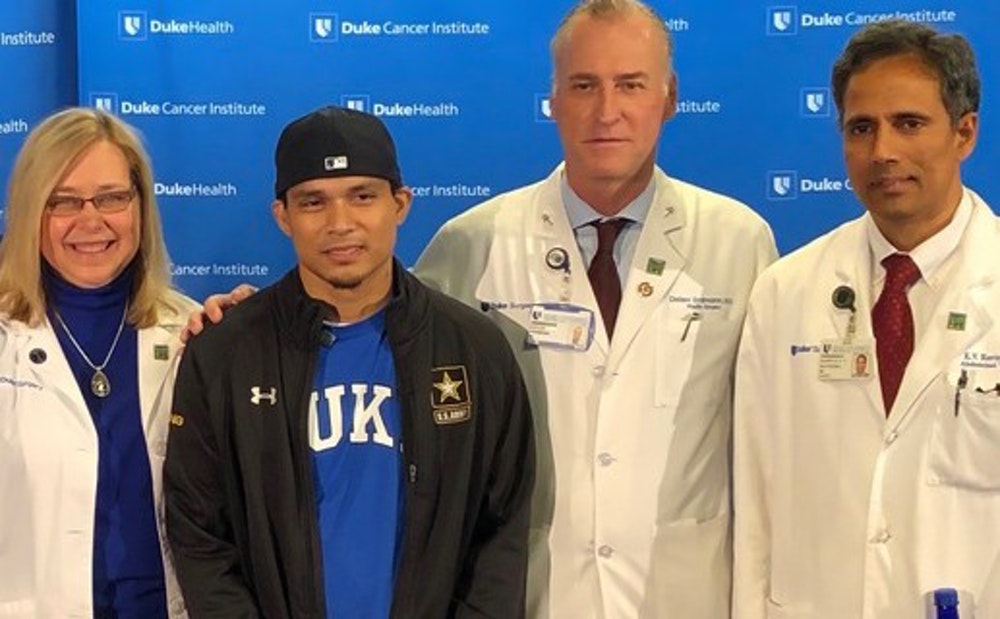
November 27 - While Nauta would wait four more years for the transplantation surgery, a team of Duke doctors including Detlev Erdmann, plastic and reconstructive surgeon, and Kadiyala Ravindra, abdominal transplant surgeon, strategized the surgical plan. “The transplant fell under a subsection of transplants called Vascularized Composite Allotransplantation (VCA)," Ravindra said. "The VCA is a relatively new transplant. Less than 30 cases of abdominal organ and wall transplantations had been done around the world." Ravindra and Erdmann worked closely with Debra Sudan, chief of abdominal transplant surgery.
Liver transplant from HIV+ living donor to negative recipient: the unanswered questions
November 28 - A lifesaving partial liver transplant from an HIV-infected mother to her uninfected child – the first of its kind – was conducted last year at the University of the Witwatersrand’s Donald Gordon Medical Centre in Johannesburg. More than a year later, both mother and child are doing well. But the crucial question of the child’s HIV infection status remains unanswered. And we don’t expect to have a definitive answer any time soon.
Nanomedicines - curing kidney disorders
November 26 - Nanotechnology, the engineering of atoms or molecules at the nanoscale for biomedical applications is beneficiary for the treatment, diagnosis, and research of diseases, specifically for kidney disorders. Nanomedicine increases drug solubility, reduces off·target side effects and diagnostic tools. Recent researches in this field improve imaging and therapeutics for AKI. Nanomedicine tailors with kidney retention and binds with key membranes and cells which are associated with renal diseases. The binding enhances cells' localization, tolrability and efficacy.
Merchants of Death: The Thriving, Unregulated Body Brokerage Industry
November 27 - Organ donors, both living and deceased, play a vital and lifesaving role in modern medicine. Whole-body donors play a role just as vital, enabling scientific research and the training of new physicians. However, the legislation and government oversight involved in organ donation does not currently exist for whole-body donations.
Upcoming Meetings ANNOUNCEMENTS
CTRMS 2019 - SAVE THE DATES!
SEPTEMBER 21-25, 2019 - LESVOS, GREECE
Abstract Submission is now open!
Contact
+1-514-874-1717
This email address is being protected from spambots. You need JavaScript enabled to view it.
Address
The Transplantation Society
International Headquarters
505 Boulevard René-Lévesque Ouest
Suite 1401
Montréal, QC, H2Z 1Y7
Canada


